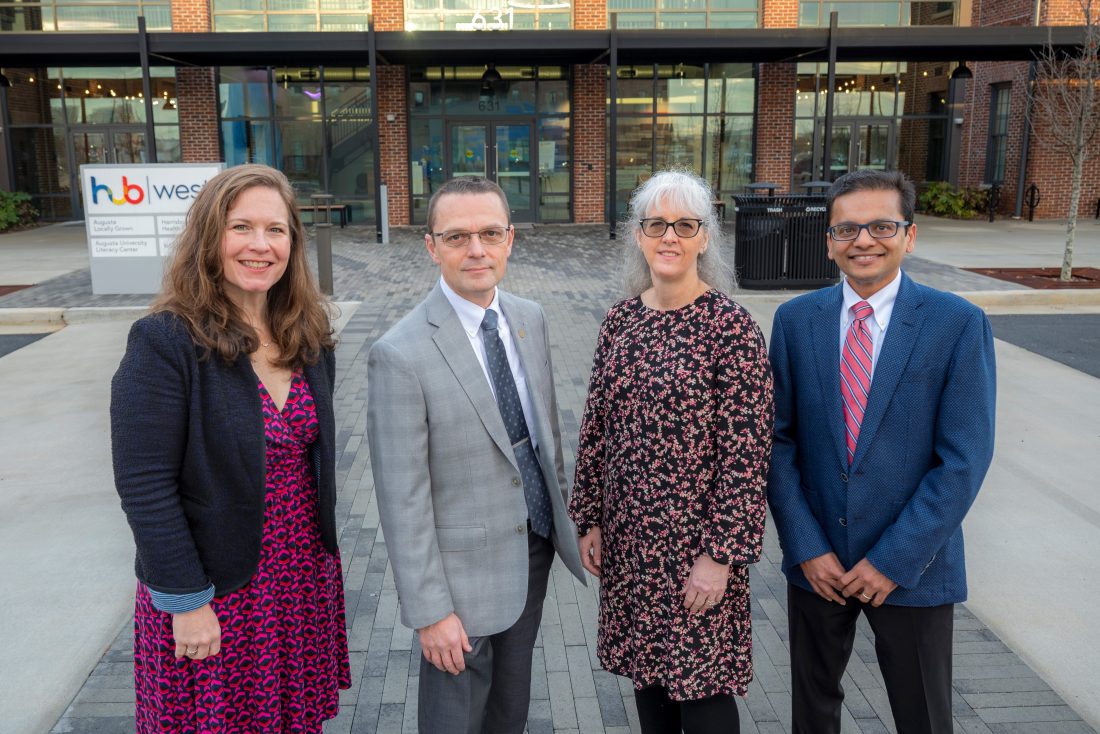The Department of Family Medicine at the Medical College of Georgia has changed its name to better reflect its mission of service to the surrounding community and the state of Georgia.
The newly named Department of Family and Community Medicine “has moved beyond a focus on individual patients and families to focus on patients and families within their communities,” says Dean Seehusen, MD, department chair. “This is in keeping with the specialty of family medicine’s roots, which have always been highly community focused. Many family medicine departments across the nation have evolved and made this change.”
In recent years, the department has worked to increase its presence in the community, he says. That includes operating the Augusta University Care Center in South Augusta and providing faculty support for Harrisburg Family Healthcare, a free clinic, located at the HUB for Community Innovation in downtown Augusta. Ebony Whisenant, MD, associate professor of family medicine at MCG, is the medical director of the Harrisburg clinic.
New and reestablished educational programs are also broadening the department’s reach. The reestablished sports medicine fellowship offers faculty, fellows, residents and students the opportunity to serve the community providing physician coverage at local athletic events and working alongside athletic trainers in the local school systems. A new rural health fellowship, which will train its first fellow this year, will provide primary care physicians additional training in the most common complaints in areas like musculoskeletal medicine, dermatology and behavioral health, in addition to using point-of-care ultrasound as a diagnostic tool. Less than half of Georgia counties have access to subspecialists like dermatologists, orthopaedic surgeons and psychiatrists.
“The hope is to train physicians who can go anywhere in Georgia, including the places that are most medically under-resourced, and practice more independently,” Seehusen says. The department also plans to work with Federally Qualified Health Centers across the state to offer more places to train residents and fellows.
Research in the department is also community focused, he says. “We are not doing research on the community, but instead with the community. We are taking on topics the community finds important, like chronic disease prevention and maintenance. We can’t fix issues one patient, or even one family at a time. We must look at the social drivers of health, like inadequate access to preventive care, to good food, to high quality education, for instance. We have to address those issues at the community level.”
The department is also increasing its collaborations across the medical school and university, including with the Institute of Public and Preventive Health and the Georgia Prevention Institute. Plans for growth include potential new fellowships in geriatrics or palliative care and a joint primary care focused addiction fellowship with the Department of Psychiatry and Health Behavior.
Community research will continue to grow as well, with an eye toward an eventual Center of Excellence in Community Research. Seehusen also hopes to open more clinics throughout the CSRA. “That gives patients better access to our health system, but also gives our learners better access to the community. That only creates more collaboration.”
Seehusen is quick to credit recent and future growth to leaders across the department, including Sumit Fogla, MD, vice chair of clinical operations and quality; Julie Dahl Smith, DO, vice chair of education, family and community medicine; and Christy Ledford, PhD, vice chair of research and Curtis G. Hames, MD, Distinguished Chair in Family Medicine.
 Augusta University
Augusta University




